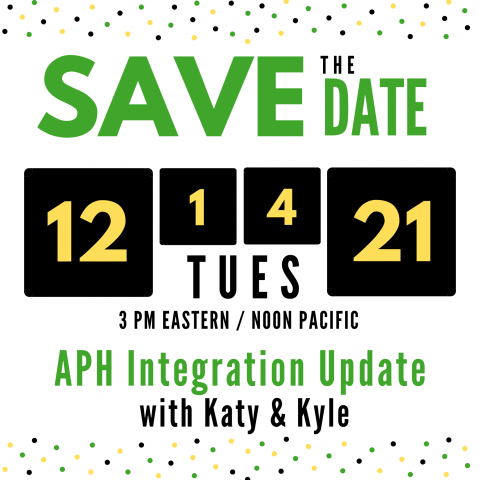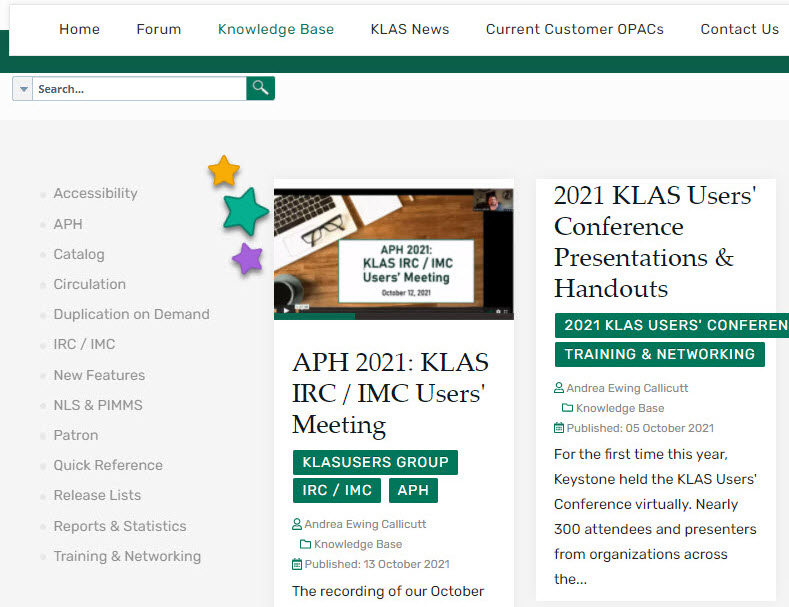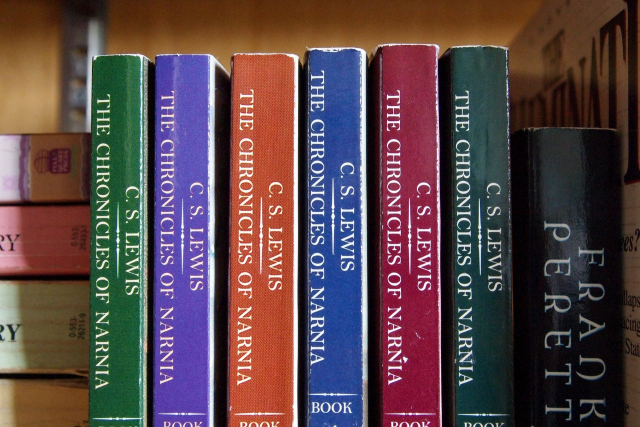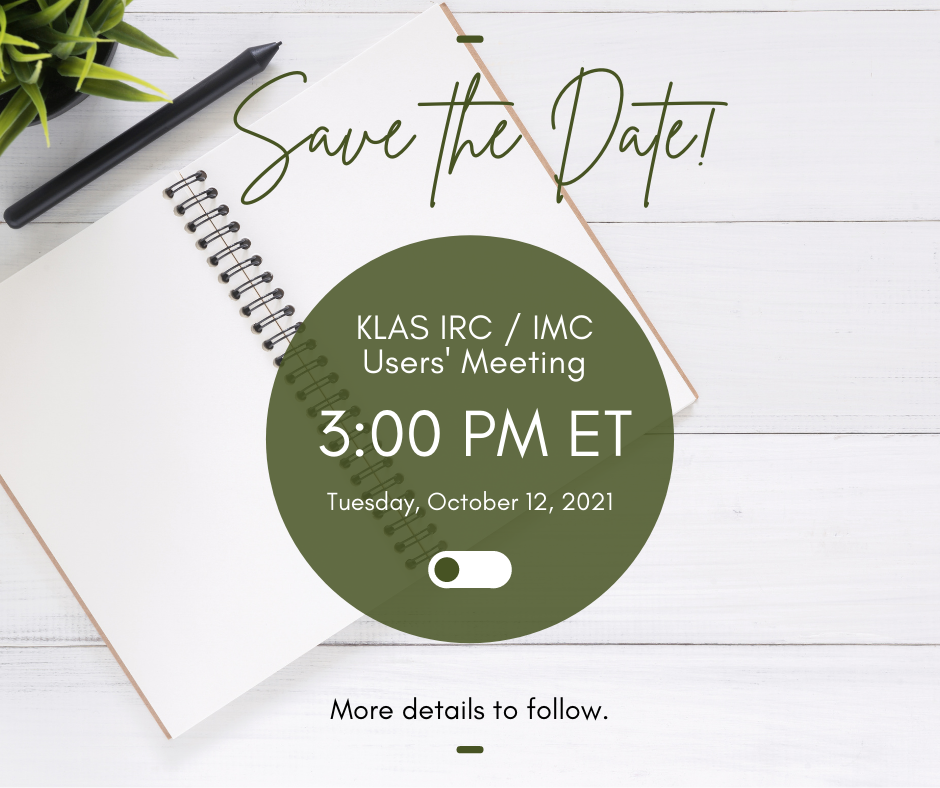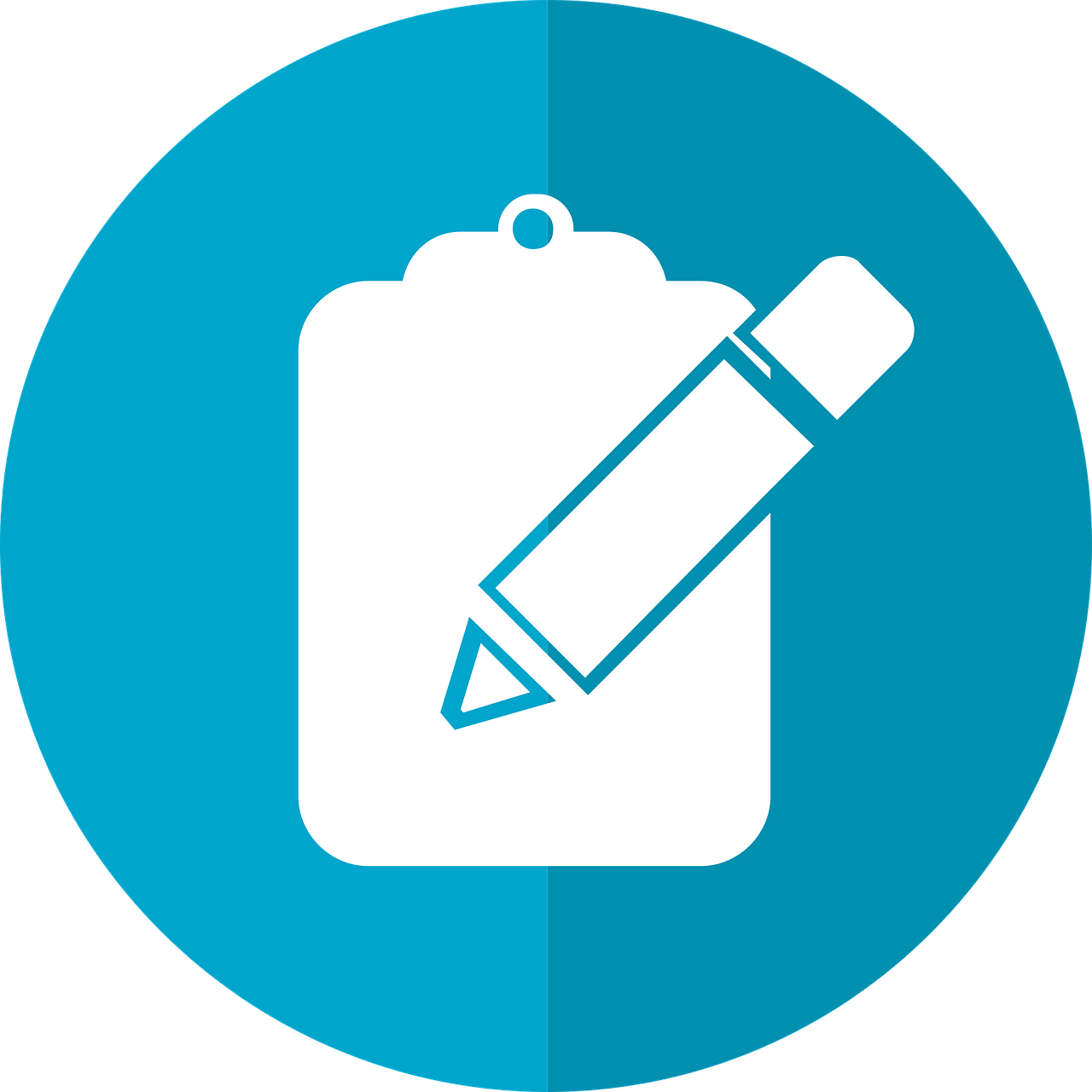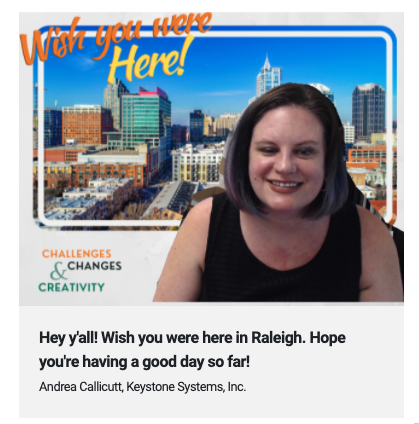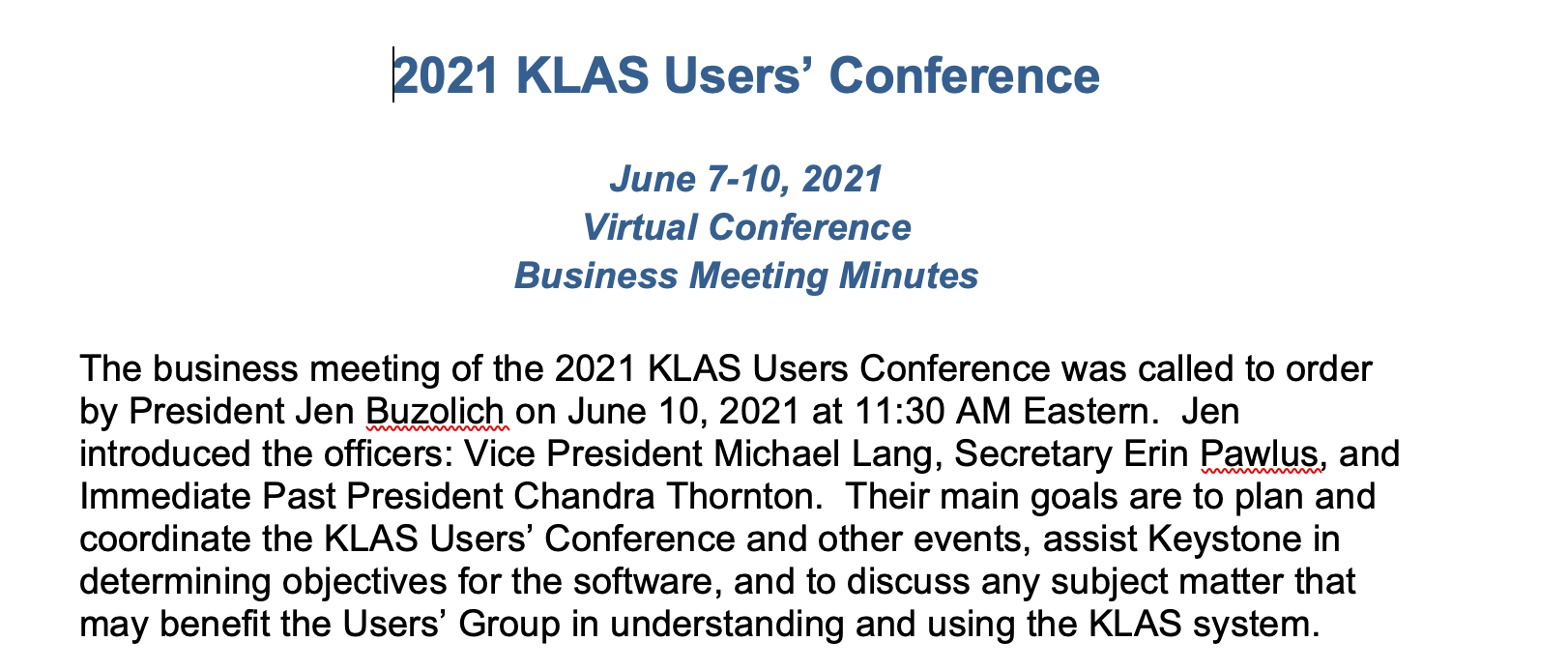- Lee Higley
- News
Keystone Systems continues our analysis of the remote code execution vulnerability (CVE-2021-44228) related to Apache Log4j (a logging tool used in many Java-based applications) disclosed via GitHub on 9 Dec 2021. As we and the industry at large continue to gain a deeper understanding of the impact of this threat, we want to relay our current standing, mitigation of, and continued diligence to defend against this and other potential attacks.
In addition to monitoring the threat landscape for attacks and developing customer protections, our operations team has been analyzing our products and services to understand where Apache Log4j may be used, and are taking expedited steps to mitigate any instances. Currently, we have identified one piece of software core to the KLAS application that was vulnerable. The vendor that produces the software identified has provided mitigation steps for the Log4j threat, and those actions have been put into place in Keystone’s hosting environment. For Keystone’s self-hosted customers, if your IT has allowed us access to your system, we are rolling out this action as well.
If your IT department has questions, or for self-hosted customers that would like to apply the correction themselves, please don’t hesitate to contact Keystone. If you are interested in the technical details for the affected software, please see the vendor’s security report.
As always Keystone will continue to utilize industry best practices to keep your databases as safe as possible. Those practices include daily network and penetration scanning, enterprise class anti-virus software, daily malware scanning, and a dedicated patching schedule. If you, or your IT department, have any questions about Keystone’s security practices please submit a request for our annual SSAE SOC II audit report.
Thank you,
Lee Higley
IT Manager
Keystone Systems
- Andrea Ewing Callicutt
- News
Last week we announced the creation of a new KLASusers IRC listserv. This week, we want to share / remind you of the various ways KLAS Users can connect with one another, and how to subscribe to each:
- KLAS Users listserv
- KLAS IRC Users listserv
- KLASUsers.com discussion forum
- Comments on KLASUsers.com articles
KLASusers listserv
The KLASusers listserv is open to any and all KLAS Users, whether you're a library director, an IRC inventory clerk, a member of your organization's technical support staff, or anyone else who uses KLAS. Keystone staff typically send out our Weekly Wrap-up to this listserv every Friday which includes info about new articles and forum posts on KLASusers.com, MARC record updates, info about the current KLAS release, upcoming webinars and other online training opportunities, etc.
User discussion is also welcome and encouraged! However, please remember: Replies will go to the entire listserv. To reply only to the sender, use the "reply to sender" link in the email footer.
The easiest way to get signed up for the listserv is via the KLASUsers listserv subscription page, or you can send a list of names and email addresses for your organization to .
KLAS IRC Users listserv
Last week we shared info about our shiny, new KLAS IRC Users' listserv. We hope any and all instructional resource / materials center staff who use KLAS will subscribe to this more focused e-list. We will share the KLAS Users' Weekly Wrap-up to it which will contain both IRC and non-IRC related information to it (including the latest release, so you can stay up-to-date), but otherwise it be strictly IRC-relevant communications. If you haven't already, be sure to sign-up ASAP via the KLAS IRC Users' listserv subscription page.
User discussion is also welcome here, so long as it is IRC related.
KLASUsers.com Discussion Forum
Our discussion forums have been an integral part of KLASusers.com since it's launch. The benefits of the forums over listservs for sharing information include threading, the ability to subscribe only to desired areas, and a more easily browse- or searchable archive, compared to searching your inbox for an email you remember possible getting at some point. We encourage you to post questions, ideas, resources, and suggestions to the forums. Available categories for posts are based on the different KLAS modules, various parts of the KLAS User community (Ex: RA, IRC, AT, KLAS Novices, etc.), and even Keystone services.
Anyone can read the forums, but you must be signed into klasusers.com to create a post or reply. To request a klasusers.com account for yourself or a new staff member, please send an email to and include the following:
- Full Name
- Desired Log-in Name
- Email Address
- Name of Library / Organization
KLASUsers.com Article Comments
Did you know that if you reply to an article on klasusers.com, it will automatically become a forum post that Keystone staff and other users can view and respond to? Yes, you do have to be logged into klasusers.com to post a comment or question, but it's a great way to get clarification on a post, share your insight or feedback, or start a conversation relating it.
- Katy Patrick
- News
Hey, IRC KLAS-users! We’ve got several things of interest for you this week including:
- an updated Intro to KLAS user guide for IRCs
- an upcoming webinar to talk APH Integration
- and best of all, a shiny new email listserv
Let’s talk details...
Intro to KLAS for IRCs
I’ve just posted an updated version of this user guide to the Knowledge Base. It includes an overview of all the main KLAS screens and some of its primary functions. You’ll find the download on the Intro to KLAS for IRC Users page.
Note: This manual was originally designed for print, and the images are not described. If you use Assistive Technology or otherwise cannot benefit from undescribed screenshots, please see the AT Reference Document as well for contextual information and text-only screen contents.
Upcoming Webinar
Don’t forget! The 12/14/2021 APH Integration Update Webinar is coming up fast, and we’d love to see you there. During this session, we plan to demonstrate KLAS screens, discuss planned workflows, share development updates, take suggestions, and answer questions.
Not sure what the APH Integration is, or wondering how it will help? Something in particular that you really, really hope it will do? Don’t miss this chance to get the inside scoop and make sure we know your priorities!
KLASusers-IRC Listserv
The main KLASUsers email listserv is available to anyone and everyone who uses KLAS... but with the transition to Duplication service, the need to keep up with NLS cataloguing, and just being a rather large and well-acquainted group, the LBPD / Talking Book Libraries tend to dominate the discussion.
We love hearing so much from them and seeing them use the list to work with each other, but we understand that you don’t need all that cluttering up your inboxes.
In an attempt to facilitate communication with and amongst our KLAS IRC Users', we've setup a new e-list specifically for you. We will cc: the new e-list with the KLAS Users' Weekly Wrap-up each Friday, which contains the latest KLASUsers.com content, release updates, forum posts, etc. for ALL KLASUsers. Otherwise, all emails to this list will be kept IRC-specific.
We hope you’ll subscribe to the listserv and join the discussion!
- Andrea Ewing Callicutt
- News
On Tuesday, December 14, 2021 at 3 PM Eastern / Noon Pacific Katy and Kyle will be offering a live webinar focused on sharing information and details about the integration between KLAS and APH's ordering system and catalog of products. During this session, we plan to demonstrate KLAS screens, discuss planned workflows, share development updates, take suggestions, and answer questions. We invite any and all Instructional Resource / Instructional Materials Center users to mark your calendar now and join us for this special Keystone webinar!
- Date: Tuesday, December 14, 2021
- Time: 3:00 PM Eastern Standard Time / Noon Pacific Standard Time
- Zoom Meeting Link: https://us02web.zoom.us/j/87018666883?pwd=WUZhSW5YVTBwRmxlVnRIQlpwZHhjUT09
If you have any questions or comments you wish to submit in advance, you can send them to:
In the meantime, we invite you to review the recordings of the APH 2021 KLAS IRC / IMC Users' Meeting from 10/12/2021 and the recent KLAS IRC / IMC Users' Roundtable held on 11/3/2021 during which we discussed the current status of the KLAS / APH Integration Project.
Full Connection info:
Join Zoom Meeting: https://us02web.zoom.us/j/87018666883?pwd=WUZhSW5YVTBwRmxlVnRIQlpwZHhjUT09
Meeting ID: 870 1866 6883
Passcode: 632597
One tap mobile
+19292056099,,87018666883#,,,,*632597# US (New York)
+13017158592,,87018666883#,,,,*632597# US (Washington DC)
Dial by your location
+1 929 205 6099 US (New York)
+1 301 715 8592 US (Washington DC)
+1 312 626 6799 US (Chicago)
+1 669 900 6833 US (San Jose)
+1 253 215 8782 US (Tacoma)
+1 346 248 7799 US (Houston)
Meeting ID: 870 1866 6883
Passcode: 632597
Find your local number: https://us02web.zoom.us/u/kda33PJihT
- Katy Patrick
- News
Have you noticed something new over on the Knowledge Base?
With the KLASusers redesign, we hoped to help you find resources without needing to navigate a bunch of menus or know how the specific content you were looking for was formatted. To do so, we condensed the site into just two areas (the Knowledge Base and KLAS News) with the expectation that users could find specific content using the search box or clicking through Tags.
This works well for some, but not for others. It didn’t help that articles were not displayed newest-to-oldest, but by subcategory.
Well, we've added something we think is going to be a big help!
There's now sidebar on the left side the Knowledge Base, and it’s also coming soon to the KLAS News section. This isn’t a menu—you don’t need to figure out the one right path to get to the article you want. Instead, it’s a listing of Tags, and an article can have as many Tags as it needs to describe the content.
We hope these Tag lists will help you browse the site more easily, whether you’re after something specific or just seeing what’s available.
If you know exactly what you’re looking for or looking for something that isn’t in the tag list, you can still use the Search box to navigate the site as well. There are a couple tags with little (or any) content just yet—consider it a peek at my to-do list. I plan to fill in the Knowledge Base even more over time, so stay tuned. In the meantime, if there’s a tag you think we should add, please let us know!
- Maureen from FL
- News
This is a guest post by Maureen Dorosinski, Librarian / Production Supervisor, Florida Bureau of Braille and Talking Book Library Services.
The question:
Meagan from FL1M had a question: “Do we have exclusions for certain dates? Many of our patrons are auto select from their preferences, but only want books from a certain time period.”
Nancy at KLAS suggested we could set up subject codes based on dates. For example, instead of putting everything in the "Bestseller" category, a Bestsellers of the 1990s, Bestsellers of the 80s, category.
First Stop:
Nancy completed a process of setting up the bestseller codes for the various decades. She set the following in place, and filled them:
- BEF50 / BEN50 - fiction and nonfiction prior to 1970
- BEF70 / BEN70 - fiction and nonfiction from 1970 - 1979
- BEF80 / BEN80 - fiction and nonfiction from 1980 - 1989
- BEF90 / BEN90 - fiction and nonfiction from 1990 - 1999
- BEF00 / BEN00 - fiction and nonfiction from 2000 - 2009
In putting these codes on the titles, she also removed the generic BES, BEF and BEN codes, so what is remaining in those subject headings are the more recently published titles.
Second Stop:
Since NLS uses an amalgam of LA Times, New York Times, USA Today, and Washington Post bestseller lists to tag books, our cataloger Dina took things to the next level and further populated these tags from NLS by searching all the New York Times Bestsellers, and adding the appropriate subject headings to previously unnoted bestsellers.
To streamline the process, she went to Bookshare.org. They have a section of the top 10 fiction and non-fiction titles from the NYT list, these lists round up the titles without repeating them, and can be filtered by year and month.
Going Forward:
Nancy says the automatic codes being used are BES, BEF and BEN. When MARC records come in, those are updated. If, in your review, you see a recently added title that was originally published in 1970, you might want to add the 1970 bestseller code to it, but other than that, those should stay pretty static. And yes, remind the RAs that these categories exist, for either selection or exclusion.
Maybe another library could continue, Dina says we'll have to add subject headings for the 2010s and (eventually) the 2020s and assign them as appropriate. Maybe you will share their queries with us to import!
Get Bestsellers By Decades at Your Library:
I have attached the text queries with all the books we have tagged in each of the categories. To apply them in your catalog:
- Add the new subject codes as listed above to your catalog using Headings Maintenance.
- Import the first query file.
- Use the Change Headings - Query Set tool to apply the new heading to the Query Set and remove the old heading.
- Repeat for each of the query files.
I’m sure KLAS would help out if you need them!
Downloads:
Thank you!
Maureen in FL
- Katy Patrick
- News
The 2021 KLAS Users’ Conference presentations are now available for download!
In case that feels a little late in coming... no, we didn’t just forget. In fact, the presentations have been available to attendees this whole time, along with the full session recordings, on the PheedLoop conference platform. The reason these presentations are now available here as well is to make them available to those who were not able to join us for the conference.
We want to make sure that those who pay to attend the conference get ample value for it, and plenty of justification for their state agencies. The conference is not a profit-generating event for Keystone, but those registration fees are necessary to cover expenses, whether those expenses are for online event hosting or in-person. With an online conference, there was concern that, if the full recordings were available to everyone, funding agencies may wonder why they should pay for you to attend live sessions at the next conference.
However, we also know that you don’t necessarily choose your funding agency or their restrictions, and many states have very real budget constrictions. We don’t want to leave those of you who can’t attend the conference in the dark!
In committee discussion, this was identified as our solution: the conference presentations (but not the full recordings) would be made freely available after a delay.
We hope this is a help to those of you who weren’t able to join us (without causing trouble for those who were)!
Not sure where to start? We had a fantastic slate of presentations this year, but here are a few of my personal recommendations:
TLDR; Too Long, Didn’t Read
Have trouble keeping up with all the KLAS New Features? Just want to make sure you haven’t missed something important? This session was a look back at some of the best improvements and new features of 7.7, hosted by Nancy and yours truly. In addition to the presentation, instructions and an example user.ini are also available, due to request during the live session.
Nightly Configuration: Understanding How Titles Make It To The Service Queue
Sam Lundburg did a lot of research and testing and knocked it out of the park with his deep dive into Nightly Configuration for Duplication. If you want to know more about how Nightly chooses books for the Service Queue and how you can adjust it to work in your favor, don’t miss this presentation! (Note: please do not hesitate to contact Keystone Customer Support for assistance with your Nightly Configuration.)
X MARCs the Spot: Subject and Series Mapping in KLAS
If you have questions about subject mapping or just wonder what the deal is with the subjects that do (or don’t) show up with new MARC records, read up on it here. Erin Pawlus and Dylan Calhoon share their experiences and lessons about Subject and Series mapping, with plenty of great takeaway information.
P.S. Google Drive Tip
Did you know you can download multiple files from a Google Drive all at once? Due to the number of files available, we felt that this feature would be worth hosting the files on Google rather than on KLASusers itself.
Select all of the files you want (using shift or control), then use the menu icon and choose Download. Google will collect all of the selected files into a zipped folder and start the download automatically.
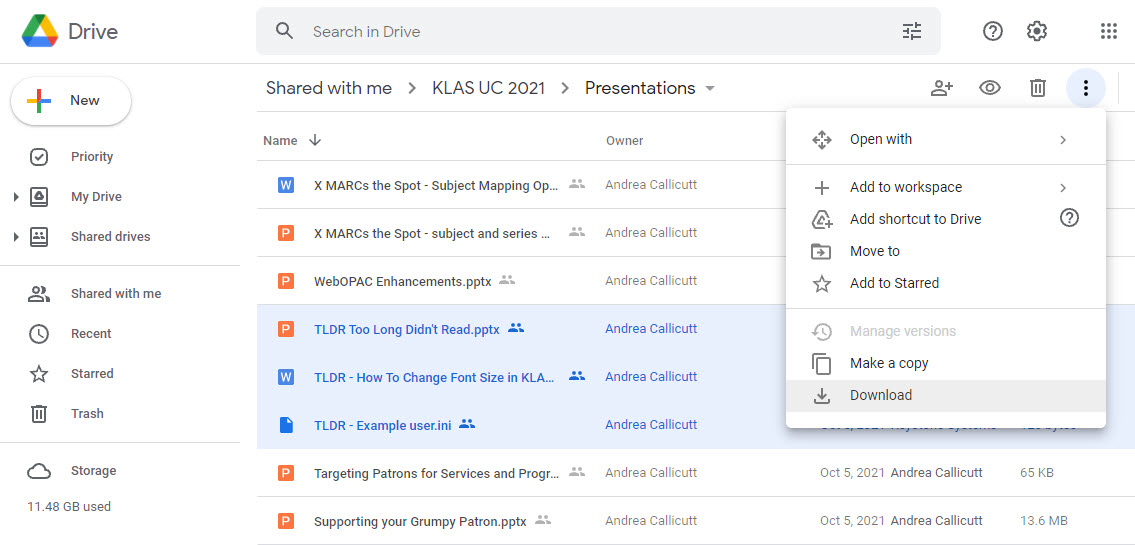
- Sam Lundberg
- News
This is a guest post by Sam Lundberg - Reader Advisor for the New Mexico State Library for the Blind & Print Disabled, and current President of the KLAS Development Advisory Committee.
We’ve had a lot of interest recently from across the community for Nightly AutoSelect to be more “series smart,” and not send book 3 in a series before a patron has had book 1. I’m among the chorus that’s been asking for this since the beginning of DoD, but I think it is worth talking about exactly how we want this to work. There are a lot of different ways that Nightly could be series smart, each with a different impact on the patron experience.
I’m going to lay out a few of the ways that I’ve thought of, along with advantages and possible drawbacks. I’d love to hear what others have been thinking on this subject, and I’m sure Keystone would appreciate knowing exactly what we want, rather than a vague mission to make it better.
As a preface, I have no idea how practical any of these solutions are from a programming side. I’ve tried to lay out specific rules that an algorithm could follow, but that doesn’t mean they would be easy, or even possible, to put in place. Some of these rules may also bog Nightly down to a crawl, requiring more time to run each night. This is a thought exercise to figure out exactly what we, as a community, want, rather than a menu of actual possibilities.
Option 1
1a) “First in the series only”
- When Nightly picks a title by Subject, it checks the “series sequence” field and excludes any book with a value greater than 1.
This is basically what is accomplished by libraries that use a “Sequel” subject code. Autoselect wouldn’t send out any sequels, which would exclude a large number of books from popular authors who write primarily or exclusively series. For context, I just ran a query and found that 321 of the 564 mystery titles we’ve added this year have a series sequence between 2 and 999.
Since this would be based on a Nightly setting, it would be library-wide rather than patron by patron. However, if KLAS also adds the ability to customize Nightly Functions by Serve Code, you could create an “AutoSelect No Sequels” serve code and an “AutoSelect All” serve code and select the appropriate one for each patron.
1b) “First or next in series only”
- When Nightly picks a title by Subject, it checks the “series sequence” field and excludes any book with a value greater than 1 UNLESS the patron has a “HasHad” for the previous book in the series..
Like 1a, except that subsequent books in a series can be sent if the patron is caught up in that series. This would help increase the available possible selections for series-heavy genres like Mystery. However, there is no mechanism for a patron to catch up on a series once they have missed a book, or for new patrons to get started on a long-standing series, without a specific request or Series preference.
Option 2
2a) “Not this book, but this series”
- When Nightly picks a title by Subject, it checks the “series” field and instead sends out the earliest book in that series not marked as “Has Had”.
The idea here is that, instead of sending out book 7 in a series, Nightly would go back and send out book 1 (or book 5 if the patron had the first four books already). This method would ensure that patrons are still able to access series books, but will always do so in order.
However, because the book Nightly initially found isn’t being sent out, there is no “Has Had” record added to that title, so Nightly will keep finding that book and sending books from that series over and over and over. How much of a problem this is will be very contextually dependent. If you use “Latest First” service for Subject, the books Nightly finds will change constantly.
But if you use “Earliest First” and don’t update your KLAS ID Ranges often, then nightly will check the same books every time. For instance, if your KLAS ID range starts at DB090000, Nightly will find Joanne Fluke and Stuart Woods at 90001 & 90002 respectively, so patrons with a mystery Subject preference would receive those entire series in rapid succession under this scheme. And given the prevalence of this sort of long-standing series, patrons may receive a large number of older titles as they are bumped back 20, 30, 50 books in a series.
2b) “Not this book, but where I left off this series”
- When nightly picks a title by Subject, it checks the “Series” field, locates the item with the highest series sequence in that series with a “Has Had” record, and sends the next book.
2a would fill in gaps if a patron skipped books or started with book 15. 2b wouldn’t fill in gaps, but would select the next book after the highest numbered book the patron has read.
For example, if a patron has read books 1, 2, 4, and 8 in a series and Nightly wants to send them book 10, 2a would instead send book 3, while 2b would send out book 9.
Option 3
3a) “Not this book, but this series, but not too often”
- When Nightly picks a title by Subject, it checks the “series” field and instead sends out the earliest book in this series not marked as “Has Had” UNLESS a book in this series is already in the Service Queue or a pending order, in which case Nightly will skip this title and series.
See Option 2, except that the frequency of a series being sent is gated by the length of the service queue, rather than the frequency the queue is refilled. If the patron’s service queue is 30 books long, you know there will be at least 30 books between each book in a series. However, this makes more sense for long running series than for short trilogies. I could see wanting to have different behaviors based on the length of the series, but that is getting complicated to keep track of. Keep in mind, this only applies to Subject and possibly Author. Books selected by Series, Request or Reserve would not have this same gating.
3b) “Not this book, but this series, but not too often, and picking up where I left off”
- When nightly picks a title by Subject, it checks the “Series” field and instead sends out the next book after the highest number book in the series marked as “Has Had”, or book 1 if the patron has not read any books in the series. UNLESS a book in this series is already in the service queue or a pending order, in which case nightly will skip this title and series.
Like 2b, this option just differentiates between filling in the gaps in a series or continuing from the highest numbered book a patron has read.
Option 4
4) “This book and this entire series”
- When nightly picks a title by Subject, it checks the “Series” field and queues all unread books in that series.
This could work well for shorter series, especially trilogies with a tight story, but would create a very hit-or-miss situation when dumping an entire 20+ book series. As with 2b, I worry that having a cutoff point for different behaviors would create confusion and unexpected outcomes. I think it would be possible to catalog our way out of this problem, flagging series as either a tight story or as episodic/procedural, but that isn’t something every library, including NM, could commit to. This rule would also need to differentiate between sequence 0 books (which are often more a collection and less a series) and numbered series.
Practically, I don’t think this could work as the default option given the sheer quantity of long-running series, but I could see this as an alternative that specific patrons would want to opt-in to.
Option 5
5) “Just care about what is in the Queue now”
- When Nightly picks a title by Subject, it checks the Service Queue for any books in the same Series. If another book in the queue is in the same Series and has a higher Series Sequence, the new book is placed ahead of the book already in the queue, rather than at the end.
Basically, if Nightly is trying to add book 2, and book 3 is already in the queue, book 2 is slotted just ahead of book 3, rather than at the end of the queue. This would only address the issue of patrons being sent books out of order in immediate proximity, such as when several books in a series are added at once by the NLS. Limited potential help but also limited potential harm.
So what option (listed above or something else entirely) would you want?
A big consideration is do we want this to be patron-by-patron? Or do we want it to be library-wide? And what do we want to be the default behavior vs. the opt-in behavior? Should this apply only to Subject selections, or Author as well?
Personally, I’m in favor of option 3b “Not this book, but this series, but not too often”. I think it addresses the core problem of books being sent out of order while avoiding any big drawbacks. It isn’t perfect, and will be clunky for short series, but that’s what Author Preferences and Reader Advisors are for. That said, I’m sure there are all sorts of circumstances I’m not accounting for that should be considered.
What are your thoughts? How, exactly, do you want Nightly to be series smart?
- Andrea Ewing Callicutt
- News
Today, I want to share a few items of particular interest to our Instructional Resource / Instructional Materials Center users including the upcoming users' meeting at APH, an update about our APH integration project, and a new IRC addition to our Users' Community. Read on for more info about each.
KLAS IRC / IMC Users at APH 2021 Annual Meeting
As you have probably heard, the 2021 American Printing House for the Blind Annual Meeting will be online again this year.
- KLAS IRC Users' Group Meeting at APH 2021: Tuesday, October 12 at 3:00-4:30 PM Eastern / Noon-1:30 PM Pacific
We are hosting the 2021 KLAS IRC / IMC Users' Meeting on our Zoom account.
Meeting Agenda:
- Keystone Update & Current Customers
- Community, Training & Events
- New KLAS IRC Features
- Upcoming Development
- Questions & Discussion
Meeting Invite:
Join Zoom Meeting: https://us02web.zoom.us/j/88072964152?pwd=NUltTVdISVRBS0VuS0Fud2VsUTZmQT09
Meeting ID: 880 7296 4152
Passcode: 167077
Dial-in for audio:
+1 929 205 6099 US (New York)
+1 301 715 8592 US (Washington DC)
+1 312 626 6799 US (Chicago)
+1 669 900 6833 US (San Jose)
+1 253 215 8782 US (Tacoma)
+1 346 248 7799 US (Houston)
Find your local number: https://us02web.zoom.us/u/kkZmZM6Wu
September 2021 APH Integration Status Update
During our August 24 KLAS New Features Webinar Katy shared the latest info on our ongoing project to integrate KLAS with APH's catalog and ordering system. We know many of you are excited and anticipating the completion of this integration project (as are we) because it means much less data entry and duplication of effort for your staff.
I asked Kyle Honeycutt, Manager of Software Development, for any additional updates he may want to share with our IRC / IMC users. This is what he said:
Using a tool called "PostMan," I have been able to successfully retrieve catalog information, post orders to their test system, and retrieve status of orders. I am in contact with APH and their contractors regarding what information is mapped in which fields, and what criteria to query on to retrieve exact catalog availability. Once all these questions are answered, the next step will be adding calls to these services within the KLAS programs.
Basically, we are using a known testing tool to confirm that the services work as expected, and that we know exactly how to consume them. Then we will introduce the complexity of consuming the processes from within KLAS.
What that means is: we're making good progress and using known tools and processes to accomplish the integration. At this point, our development needs to verify the item information being pulled from APH's catalog is identified correctly and then setup the service to pull it into KLAS in a logical manner.
New IRC Installation
Finally, I want to welcome a new instructional resource center to our KLAS Users' Community!
The West Virginia Instructional Resource Center began their implementation of KLAS this week with an onsite visit from Marion and Mitake. We're excited to work Debbie and her staff in the next few months as we learn their workflow, policies, and process and how to best make KLAS work for their organization and clients.
We're excited to have them on board, and hope you'll join us in extending a warm welcome.
- Katy Patrick
- News
During our latest New Features Webinar, we had a question about getting the complete list of all languages recognized by PIMMS. Here are some things to know about that list:
- The list that PIMMS adopted is based on the ISO 639-2 Bibliographic list, a standard list maintained by the Library of Congress. There are 487 languages on this list.
- This list is designed to represent all the languages that you might expect to find a book written in, but it is not necessarily a list of all spoken languages.
- The code values in the ISO-639-2 list are used in MARC records to indicate the language(s) of a title.
- The code values that PIMMS accepts are numeric codes, instead of the alpha values that represent the standard they are attempting to match.
There are also some things to consider regarding language codes in KLAS:
- The list of Patron Language codes (PatLang) are mapped to the numeric PIMMS codes.
- The list of Language Codes for title records (LangCode) are mapped to coincide with incoming MARC data.
- The local codes for Patron Languages and Language Codes for title records need to match for Nightly and Book Search exclusion checks.
- The list of values in a drop down are sorted by Code Value instead of description.
- The more values you have in a list of codes, the more difficult it gets for your staff to use.
- Changes to a Code list are not applied retroactively; clean up needs to be made on all affected records.
In short: there are a ton of language possibilities out there. However, when you balance out the needs of your patrons, your collection, and your staff, the only languages you really want to have in KLAS are the ones you need right now.
You can certainly add more languages than you have now without causing headaches—and we’re happy to help you do it! Languages that your patrons speak, that appear in the collection, and/or that you want to track interest in should definitely be added to your code lists.
Just know that too many languages can make things complicated, and too many changes later on can be a pain.
If you want the long version, read on for more details.
Difficulties of a Long List
Having “too many” options in a drop-down field introduces some really interesting ways to mess up data entry. For example, while the full list of PIMMS languages was briefly available, one patron was given “Middle English” as their default Language! The more options there are, the easier it is to accidentally select the wrong one, either by misreading or mis-clicking.
In addition to the unwieldiness of such long list and the ease of selecting an unintended entry, these lists sort by code not full description. This means you should take care with how you setup the codes, or the list will not be in a straightforward, alphabetical order. Once you get more than 30 or so entries in a combo-box, having a logical sort order becomes very important! For example, browse through the list of states on the Contact tab. The state codes are well-known—but they don’t sort the same as the names of the states. If you weren’t already familiar with them, could you easily use this field? What if the states weren’t in order at all?
Getting back to the list of languages that you are managing in your database – another thing to keep in mind is the way a language might be referred to by a patron vs its official name or designation. Many libraries have had Cambodian in their Patron language list for years as C or CAM but the Marc value is khm for Khmer. Serbo-Croatian was previously used for what are now distinguished as four different languages whose official codes are based on the spelling of the language in that language – hence HRV for Croatian. The MARC code is PER for Persian but the language is frequently referred to as Farsi.
Will those codes help your staff browse to the right part of the list? It’s important to understand how patrons might ask for materials in these languages, and choose local codes and descriptions such that your staff can match what a patron is saying to the proper selection.
Fortunately, the Code Files allow you to use a local code for the Patron and Catalog modules while still mapping to PIMMS and to the codes used on MARC records. Think about the local codes you may want to use, and how can use them to enforce a reasonable sort order.
Remember: selecting logical, well-sorted codes, and then selecting the right one from the list every time will be easier the shorter you keep the list.
Changes to Code Files are not retroactive
Code Files can be tricky to deal with, especially in cases where you are dealing with large numbers of records, mapping between modules, and mapping with both PIMMS and MARC records. If you’re up to it, you can add to your PatLang codes, but we recommend you leave the LangCode file to us—and don’t go hog wild changing the codes.
Here’s why:
Code Files aren’t like Headings. Headings are linked on each record; when you update a Heading, the changes appear on each record. Codes get stored on each record instead, and the Code File simply defines what that code means. If you change a Description, that’s fine! But if you change a Code, all the records with the old code still have the old code. Records with the old code won’t be able to find it in the Code File to define it, triggering error messages and generally breaking things.
Plus, for this Code File, mapping must be maintained between the Patron and Catalog modules. Doing so means Nightly can match the patrons’ preferred Language to the Language on title records.
So, if you want to change one of your language codes:
- Add the new Code to the PatLang Code File, setting the CMLS Lang Code to match the code you want to update.
- Find all of the patrons with the original Code on their record, updating each of them to use the new Code instead.
- Only delete the original Code from the PatLang Code File once it’s no longer associated with any
- Repeat the process in the LangCode file, with the catalog records, making sure to maintain the CodeXref (MARC record mapping).
Or... better yet, have us do it.
Any time you need a language added to the list, or if you want to adjust the local codes in use for sorting the list, please send the details to Customer Support at , and we’ll take it from there.
Policy Changes are also not retroactive – About Bilingual Titles
While you’re thinking about all this, here’s one last thing to keep in mind:
In the past NLS issued MARC records for bilanguage titles with a combined code, such as E/S or S/E for books with both Spanish and English parts. That policy changed! According to NLS, these books are now given a language code reflecting the “primary” language of the title, even if one or more additional languages are included. For example, “Drivetime German” which is marked as E/G in a number of databases, is primarily in English (with some German) according to NLS. Meanwhile, “eTicket Ingles” is a Spanish title (which also has English).
New MARC records arrive cataloged this way. It’s up to you whether you want to update their records to reflect the bilingual nature of the titles, or want to update your back catalog to use the approach of cataloging the primary language.
For more information about this, or advice on how to apply changes in the direction of your choice please let us know!
- Andrea Ewing Callicutt
- News
Since 2018, we've made an annual post detailing our infrastructure and planning efforts to serve your library, your staff, and your patrons after a natural disaster, and share the additional improvements we've made in the last year to our Disaster Preparedness and Recovery plans. We've spent a significant amount of time building infrastructure, reviewing procedures, and planning for an untimely incident. For this year's post, we starting with our most recent upgrades and working backwards to our original September 2018 update.
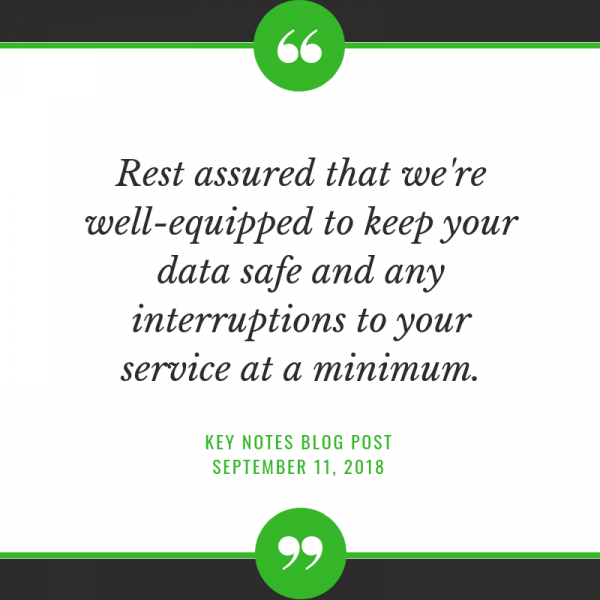
2021 Updates & Improvements
To prepare for this year's post, we asked Lee what he felt were important updates or changes made in 2021, or for any other info he wants the KLAS Users' Community to know about our efforts. The two items he mentioned are:
- The recovery process is the the same as before, but note that restoration of databases is sequential (per server), not parallel. So, while a one-hour recovery for a database at top of the queue is possible others at the bottom of the list will have a longer wait as the recovery process works through the list.
- We have added weekly server snapshots to our AWS backup servers. For an end user, this makes no difference to restoration, but it makes Keystone staff's jobs infinitely easier.
2020 Updates & Improvements
Much of what we put into place as part of our disaster preparedness plan in 2020 is what allowed our staff to begin to work from home in March of that year and continue to do so even today and for the foreseeable future.
On September 1, 2020 posted a list disaster recovery and preparedness process and infrastructure improvements we'd make over the past year such as:
- Cloud-based databases running in multiple regions, to better place the system geographically near the library
- Incremental transaction data backups happen every 10 minutes
- Database backups are saved in the local region, as well as to a separate region. If a database hosted on the east coast has a disaster, there is a copy of the database backup in another region.
- Database backups are saved to the local server, as well as copied to S3 storage
- Database backups are also copied from Amazon's data centers to Google Storage
- A new automated system restoration process which had been manual prior to the beginning of 2020. As an automated process, it takes about an hour while the previous manual process took 10-12 hours at a minimum.
2019 Updates & Improvements
On August 15, 2019, we shared the news of some additional steps we'd taken to further enhance our disaster preparedness and recovery efforts including:
- Back-end changes to KLAS 7.7 to it quicker and easier to create and store database back-ups
- A move to storing back-ups in the cloud, so they are safe and retrievable no matter where disaster strikes
- A new monitoring app so staff can be notified right away if something goes wrong with the servers and any emergencies can be dealt with as quickly as possible
2018 Updates & Improvements
Our September 11, 2018 our first Emergency Recovery & Disaster Preparedness Key Notes Blog post was written as we faced the threat of Hurricane Florence and shared details about we'd implemented at that point including a combination of both procedural and physical preparedness such as:
- A gas-powered generator at our office
- Redundant internet providers, firewalls, and network routers
- Daily backups of data to our on-site servers
- Weekly data backups stored offsite
- Encrypted database backups on AWS S3
- VOIP Telephone system to allow staff to work remotely
- Keystone Status Page to communicate database availability, even if we’re unreachable
- Contingency plans and equipment needed for remote database and customer support
- Katy Patrick
- News
As you may have heard, PIMMS recently added a large number of new Patron Language codes. This will be great for getting data and statistics on non-English-speaking patrons... but it also provides an opportunity for much better patron service!
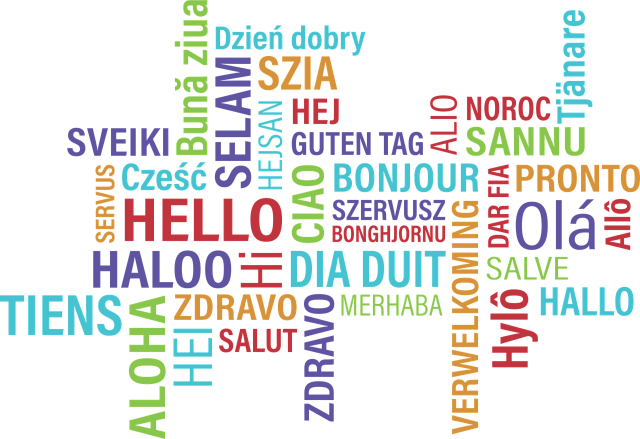
Like many opportunities, though, there's a bit of challenge too. In KLAS, Patron Language (aka PatLang) is not like Subject or Author preferences. There is no Nightly Program that goes through, finds books in a patron’s preferred language or languages, and assigns them or adds them to a Service Queue. Instead, Language is one of the options for every other program to check against.
Most Libraries have Nightly set up so that Requests and Reserves ignore language, but Subject and Author have to match. This allows any patron to request a book in a language they don’t usually receive, but ensures that automatic selections will be in their preferred language (or languages).
This also means for patrons who speak a language other than English or Spanish, there will be few-to-no books available by AutoSelect. NLS is working to fill out the foreign language collection, but for now, Nightly will find few (if any) Mystery books for a patron speaking only Cantonese, and few (if any) Romances for a patron who only speaks Polish.
So how do you ensure that your Cantonese- and Polish- (and Everything Else)-speaking patrons get books?
First, they need to have the specific language(s) they speak on their profile. If they have a Patron Language of just “Other,” NLS won’t know what languages are most needed, and you won’t be able to match up that patron with any books in your catalog. That patron will only ever get Requests and Reserves (potentially including Series, depending on your Nightly configuration).
Second, you need to make sure they have a preference setup to find books matching their language. At this time, our recommendation is to have Subject headings for each of your Patron Languages other than English and Spanish.
This allow you to add the subject “Cantonese Books” to all titles in Cantonese and give your patron a preference for any/all of those books. This is much more efficient than needing to either give your patron preferences for every subject you might get a Cantonese title in or manually doing a book search and adding requests for the patron every time a new batch of Marrakesh titles are added.
Additionally, a patron with both English and Polish as Language preferences and both Romance and Polish Language Books as subject headings will receive a mix of Romance books in English and whatever's available in Polish.
Hopefully the foreign language collection will eventually be large enough you can send foreign language titles by actual subject preferences. But, for now, this approach will ensure patrons get what you have. Plus, NLS will get the statistics on what languages are most needed, steering their collection development to the benefit of your patrons—a very win-win scenario.
Please let us know if you have questions, any time you need more Patron Language options added to your list, or if you need help setting up Subject headings for specific languages.
- Andrea Ewing Callicutt
- News
We planned to offer our next KLAS New Features webinar on Thursday, August 19, but after learning NLS will be offering "Training for finding Marrakesh Treaty materials on BARD" that afternoon we chose to postpone rather than conflict. Then, we moved it to Thursday, August 26 only to learn of another NLS training as well as APH's EOT meeting to be held that afternoon. After consulting with the KLAS Users' Group Officers and Program Committee, we chose to reschedule a second time based on their feedback.
Therefore, the next KLAS New Features webinar will now be held at 3 PM EDT / Noon PDT on TUESDAY, August 24.
We were so excited with the attendance at the 2021 KLAS Users' Conference last month and wanted to make sure as many of y'all as possible join us for our upcoming live webinar, so here ya go! Below is all the relevant info. We hope you'll be able to join us!
SAVE THE DATE for our next KLAS New Features webinar!
Who: Any and Every KLAS User! We'll be covering the latest new features and functionality for our IRC, LBPD, and others.
What: KLAS New Features Webinar
When: 3 PM Eastern / Noon Pacific Tuesday, August 24
Where: Keystone's Google Meet
Meeting link: https://meet.google.com/yhp-whfr-tyf
Dial-in for audio: +1 662-547-1247 PIN: 316 831 303#
More phone numbers: https://tel.meet/yhp-whfr-tyf?pin=2972669584815
If you have any questions you'd like us to answer, or other input please feel free to comment on this article, post on the discussion forums, or send us an email. To receive a calendar invite, please send an email to Drea () with your request. This webinar will be recorded and posted to klasusers.com for later review.
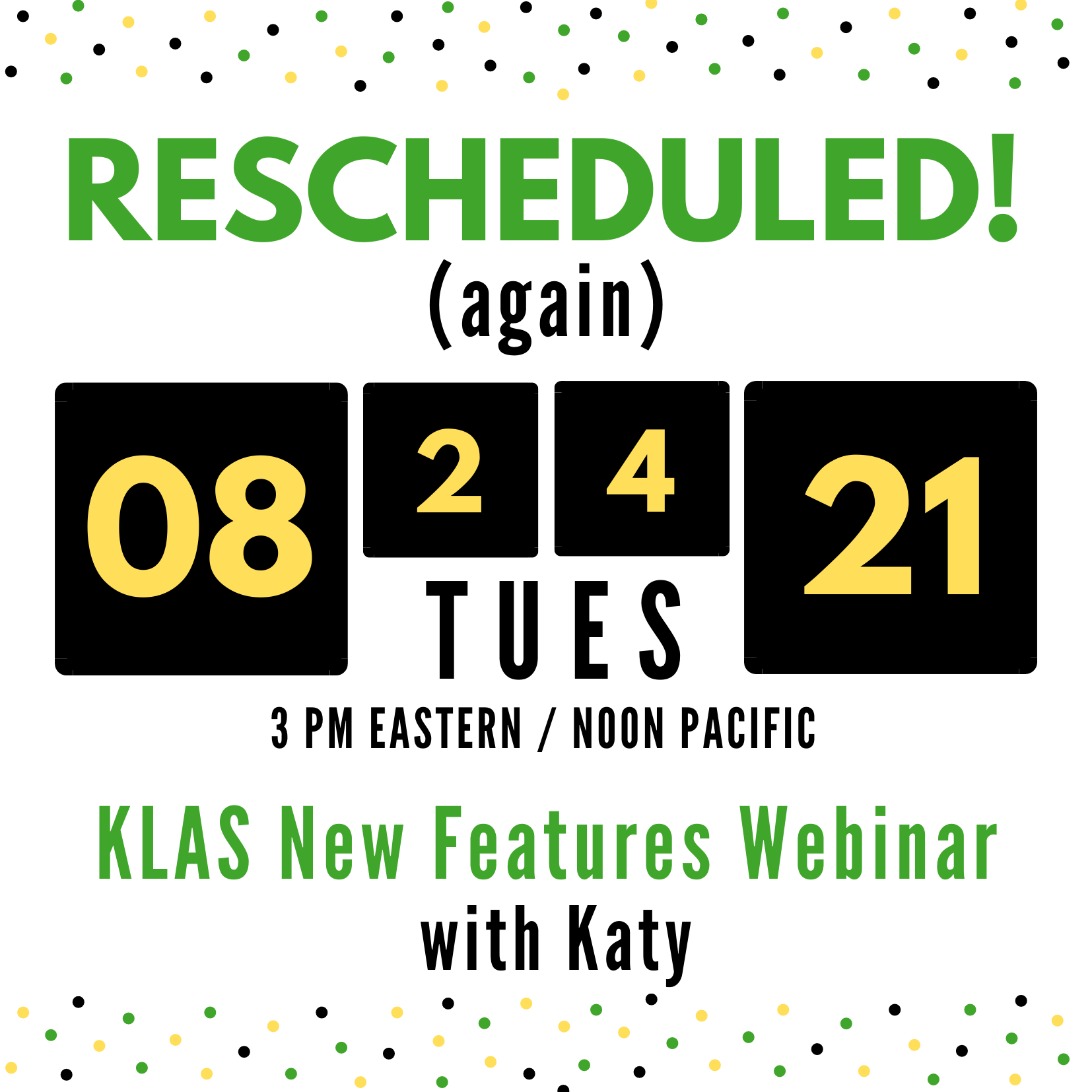
- Katy Patrick
- News
Let’s talk training!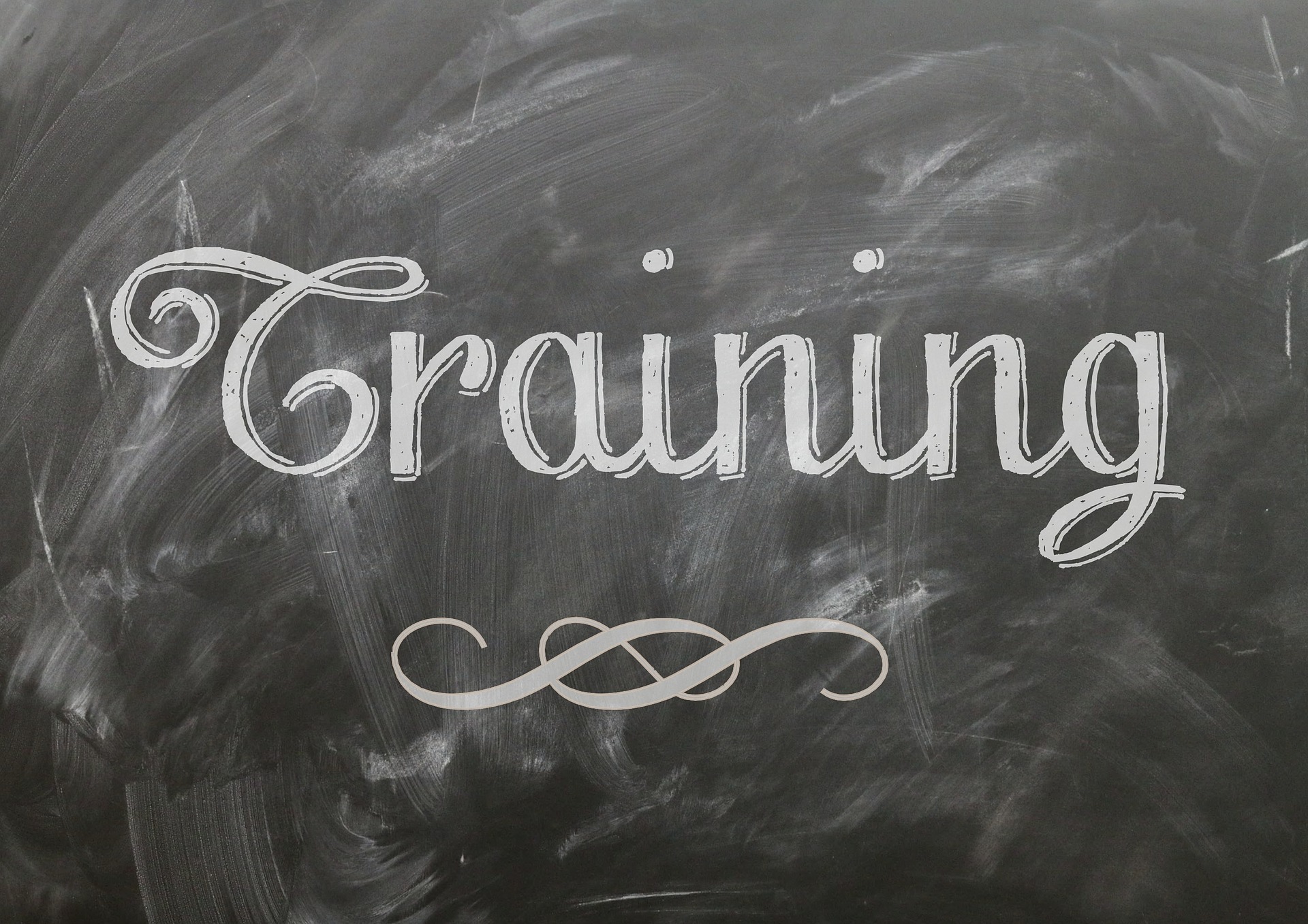
We try to have lots of resources available for everyone, and of course our Customer Support team is always happy to answer questions, but we think the availability of online webinars and other training opportunities are also incredibly valuable. That’s especially true between conferences, as we are now on a biennial schedule.
With that in mind, let’s take a look at what’s coming up, and what other opportunities are available for you.
Upcoming Webinar
Our next Keystone-presented Webinar is scheduled for Thursday, August 19th at 3pm Eastern Time. I’ll be covering New Features released since the conference, so if you haven’t been keeping up with those Release Lists (or if you have questions about any of the new features) please make sure to join us!
As usual, if you can’t make it, the session will be recorded and posted here on KLASusers to view at your convenience as well. I’m always happy to take questions or requests ahead of time if there’s something specific you want me to address.
Possible Future Webinars
We plan to continue regular New Features webinars, but what else would you like to see in terms of Keystone-presented webinars?
We’re likely to do the occasional open Q&A Session and perhaps a dedicated Duplication Q&A. We’re also discussing a webinar series specifically for new users. Would these be valuable for you? What other topics would you benefit from the most?
Please let us know in the comments section or send us an email describing what you hope to see from us!
Custom Webinars
Of course, while webinars open to the full Users’ Group have their advantages, sometimes you need something more specific for your staff or organization. Customer-specific webinars can get deeper into just your questions and provide answers and training tailored to your settings and workflow.
To support the transition to Duplication, we're offering Duplication Training webinars to each library as they get their duplication equipment. But, we also know one-hour likely isn't enough to learn everything you need to know. If you need a refresher or follow-up session, please let us know and we'll get something scheduled.
Need something else? There's the option of arranging custom webinars or a webinar series on whatever topic you need--whether it's new staff training, review, or something in-between. This is a paid service, so let us know if you're interested and we'll send our current online training rates.
Other Training Options
Want to be sure you have regular training built in the budget? You can include a set number of Training Hours in your contract to be scheduled as needed during the year. This is a great option for libraries with a lot of turnover or special projects, or who have a harder time getting one-off expenses approved.
Finally, with vaccinations widely available we can start offering In-person Training again. Like custom webinars, in-person training is flexible for your needs with the added benefit of introducing us to your space and helping us learn your workflows and systems a whole lot better. This is our preferred option for Assistive Technology Training since it allows us to set up the AT user's workstation and software in addition to talking them through using it.
I hope this breakdown has helped you understand how Keystone can help you and your organizations keep up to speed! Please let us know what Webinar topics you'd like to see from us--and get in touch if you need a quote for something tailored to fit.
- Andrea Ewing Callicutt
- News
You've likely already seen a link to the 2021 KLAS Users' Conference Attendee Feedback Form created by the KLAS Users' Group Officers and Program and Logistics Committees. With this being such a different year, it's more important than ever for us to hear from you!
In addition to getting feedback from attendees, though, both Keystone staff and the committees have each gotten together to discuss their own observations about the conference. By digging into the conference's schedule and content, as well as the PheedLoop platform, we can make sure we learn from what went wrong and take note of where we got it right.
Today I want to share some of our notes from these conversations so you know what's been our minds. (Agree? Disagree? Have thoughts on something else entirely? Please let us know--starting with the Feedback Form!)
Schedule
No schedule will be perfect for everyone, but our discussions looking back on this trended positive. We managed to offer a lot of sessions, and time them reasonably for everyone, regardless of time zone. Other ideas were discussed, but on the whole, this schedule seemed to work well for an online conference, with one exception: the month of June can be a difficult time for IRC / IMC KLAS Users to attend.
We also had split opinions on the strict enforcement of session times. On the one hand, it kept everyone on track and moving. On the other hand, it also resulted in some pretty abrupt cut-offs... as did ending sessions manually without accounting for the 10-second broadcast delay--sorry about that!
Content
We were thrilled with the amount and variety of user-proposed and user-led sessions! The Keystone staff especially appreciate the effort made by the committees to recruit and involve more users throughout the conference.
One complication we identified was that some sessions applied to more "tracks" or topics than we'd initially thought, and ended up scheduled against too-similar content. It's probably impossible to avoid schedule conflicts entirely, but one idea from our discussion was to provide a better way for the presenters themselves to identify the topics their session will cover and / or intersect with.
Platform
While we were satisfied with the PheedLoop virtual event hosting, there was definitely plenty to discuss on this front. It was a little surprising which features generated a lot of interest, and which fell flat. We made sure to consider whether that was the platform itself, people taking time to learn it, or just a matter of leaving time for it. For example, the Networking rooms were barely touched. If we want to try them again, we need to make sure there's a designated session block instead of expecting people to give up their valuable breaks to try it (especially since many people need to use those breaks to keep up on their day-to-day work).
We really liked a lot of their back-end and event management tools, but we have a long list of suggestions, feedback, and feature requests to pass on to the PheedLoop team. One strong positive: since signing on with PheedLoop, we've seen a lot of activity in terms of useful updates, so we're very hopeful that it will get better and better over time.
Final Thoughts
Virtual conferences have their pros and cons. Going online meant a lot of expanded access to new user presenters (plus other attendees) who may not have been able to attend otherwise. On the other hand, we saw mostly very familiar names, in the chat boxes and especially unmuting and speaking up in the Zoom sessions. It's impossible to replicate a lot of in-person conference experiences, but we wondered if we were doing enough to help new attendees get to know the Users' Group and feel comfortable participating.
Remember: this is your conference--so don't be afraid to let us and / or the committees know what we're doing right, what can get better, and what we haven't even thought of. We hope to hear from you!
- Andrea Ewing Callicutt
- News
The minutes of the 2021 KLAS Users' Conference which occurred on Thursday, June 10 at 11:30 AM Eastern Time / 8:30 AM Pacific during the 2021 KLAS Users' Conference are below.
- Katy Patrick
- News
We are working on making improvements to the WebOPAC to ultimately make it a more user friendly experience for Patrons. A part of this will be revising the "My Account" menu, so it will be easier to use.
The new version of the menu will more clearly present the options for a particular topic or area by giving the patron dedicated menu options for viewing currently checked out books, books they will receive next, and a searchable reading history.
In addition, we want to offer Patrons more control over certain areas of their account. This will include things like adding subject likes and dislikes, and adding, removing, or Rushing Requests and Reserves. Duplication Patrons will also have an opportunity to interact with their account and be able to re-order their Service Queue to decide what books they want to receive next.
I’m going to go through each section of the My Account menu and talk a little about some of the changes we are working on. Please understand that the changes discussed in this post are still in development and subject to change.
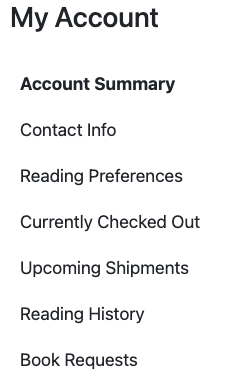
Account Summary:
Starting with the Account Summary page, there isn’t much going on here yet. Ultimately we are looking at letting the patron change their password on this page.
Contact Information:
The Contact Information section will list the Patron’s current mailing address. There will be a way for the Patron to submit an address change to be sent to library staff for review. The formatting of an address in an online form can get out of hand and trying to translate that back to KLAS can be problematic, so this is a safe approach to take.
Reading Preferences:
The breakdown of the Reading Preference page will change. It will be broken out by each category (Subjects, Authors, Series, Narrators, Languages) with a “Likes” section and a “Dislikes” section in each category. Patrons will have the ability to select “Remove” and remove a preference. We are working on implementing a simple interface for a patron to be able to add a preference. This is challenging given the similarity in some preference codes, but we may be able to work out something that is user friendly and will make the appropriate addition in KLAS.
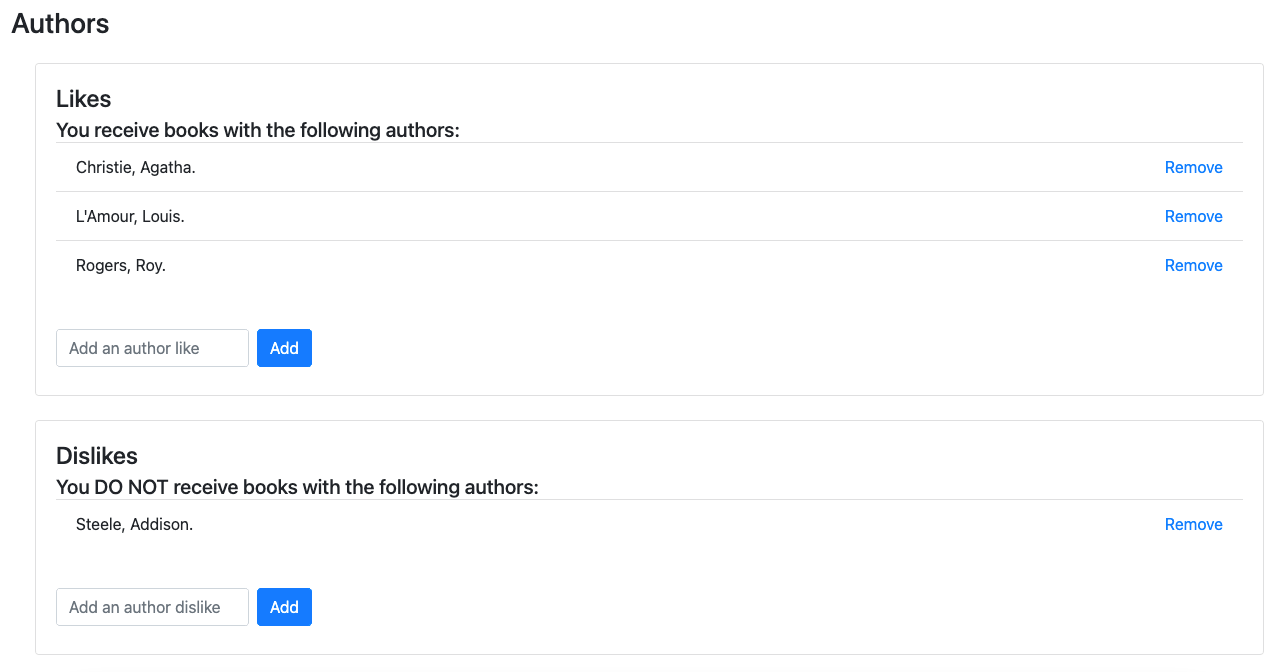
Currently Checked Out:
The Currently Checked Out page will show Patrons the books currently checked out to their account. There will be a quick summary sentence letting the patron know how many books they have out in each different format. For DoD cartridges, the display is broken out by Duplication Order so the Patron can view the titles on a particular cartridge in a group and the titles on the cartridge will be listed in the same order they played.
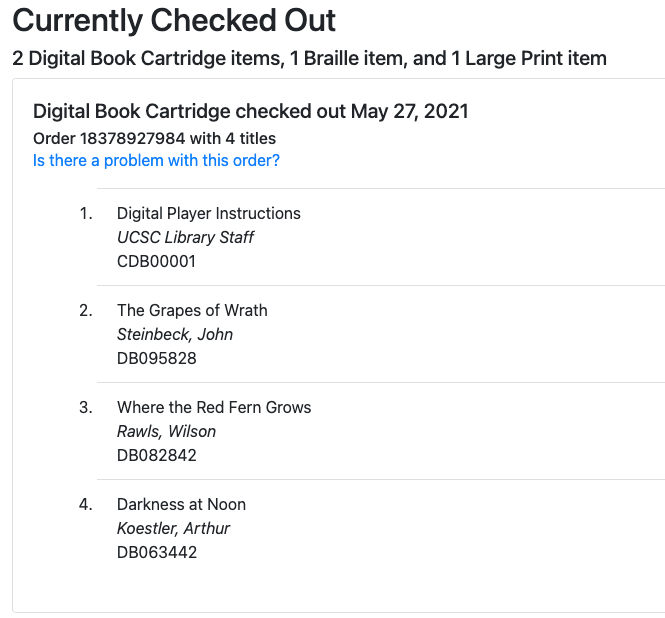
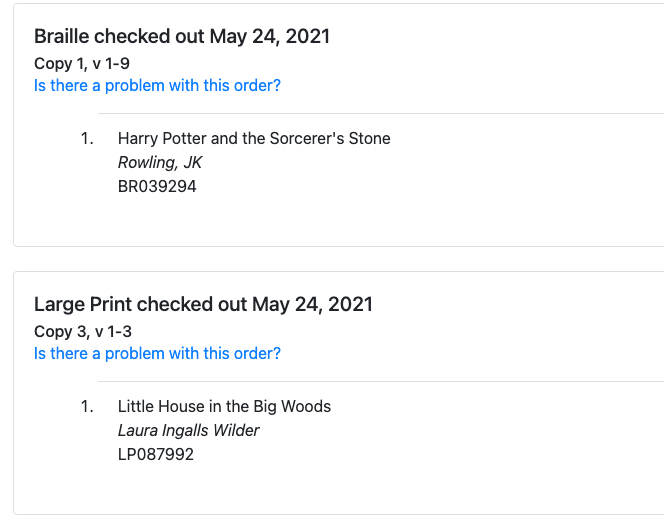
A link to report a problem with the order will give Patrons the option to let library staff know if there was a problem. We are working on what this will do – either send an email to a staff member or to send an alert in KLAS.
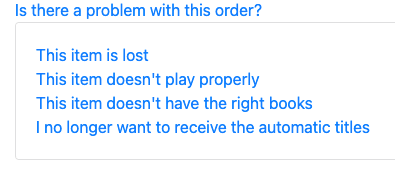
Upcoming Shipments:
The Upcoming Shipments page will show a Patron what is about to be sent to them, in some cases what is assigned (Scribe) or what has just been checked out (Gutenberg).
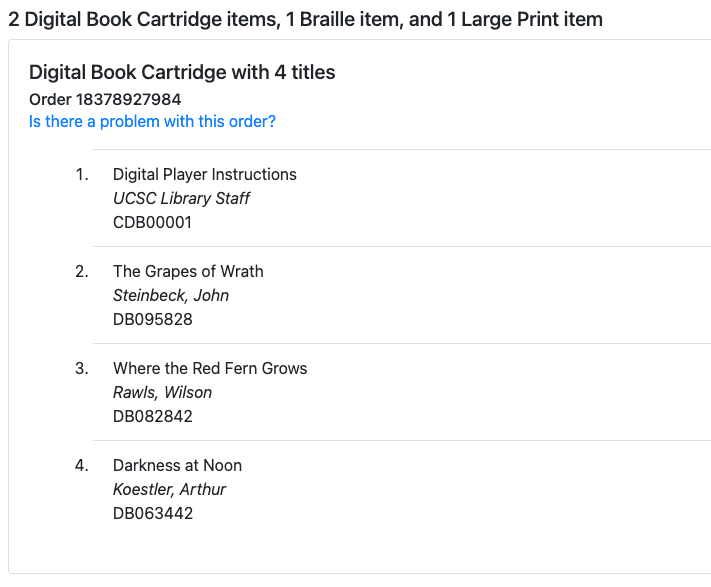
We are going to include the Service Queue somewhere in this menu. For now it is placed in the Upcoming Shipments page, but that could change. Patrons will be able to select titles and move them to the top or bottom of the queue, or remove them.
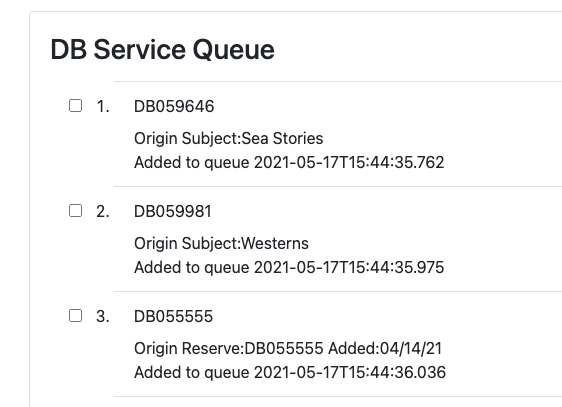
Reading History:
The Reading History page will become a searchable page. Patrons will be able to perform a search (just like a regular OPAC Catalog search) in the Reading History page, and any results returned are books the patron has read – both Has Had and Has Now books will display.

From the search results, Patrons will be able to apply some filters to further limit their results, for example they can choose to show or remove a particular subject or book format.
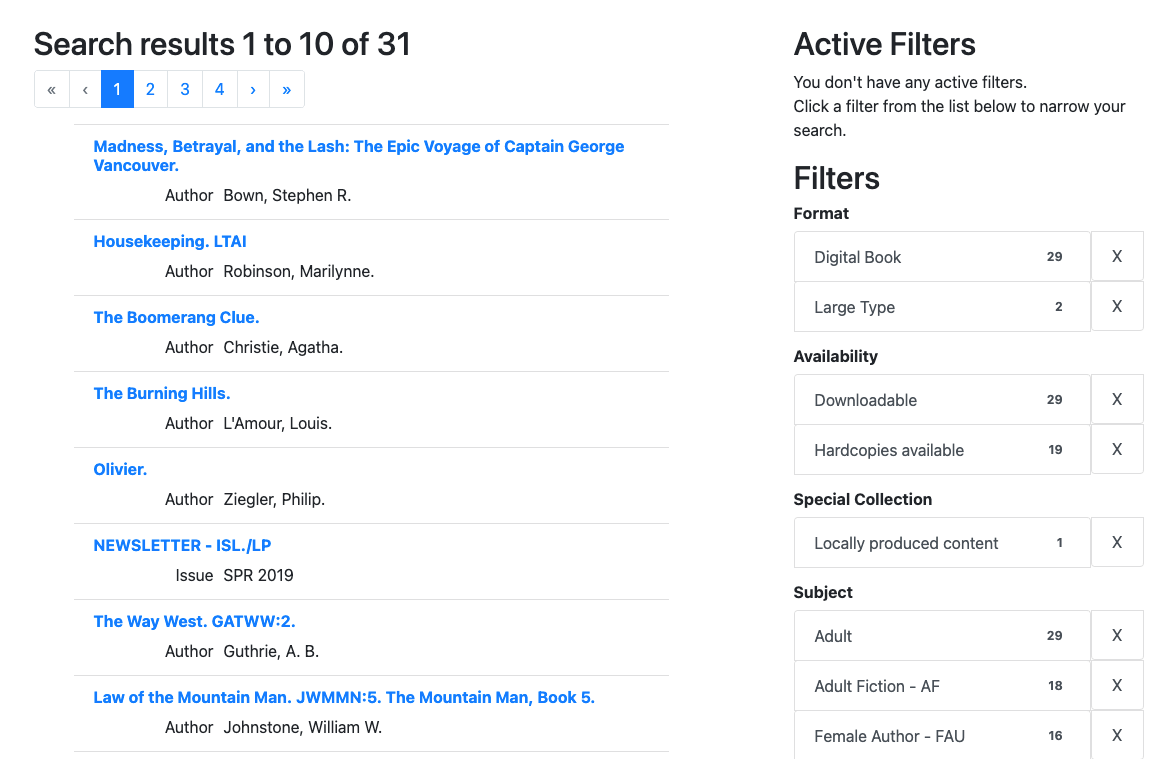
Book Requests:
The Book Requests page will show Patrons any requests or reserves they currently have and allow them to filter on some criteria to help limit results. They will be able to filter by book number, title, author, and a date range that they requested the book. The Patron will be able to select books and have some options. There will also be an option to add the book to the Service Queue. This option will be used if the patron has interest in reading that book soon, but not necessarily wanting to receive it next.
For patrons on physical book service, the Rush option will continue to either assign an available copy of a book or place a reserve on it and send that book to the patron as quickly as possible. For Duplication patrons, the Rush option will move the request to the top of the queue and place a high priority on the book, ensuring the patron receives it on their next duplication cartridge. There is also an option to remove a request.
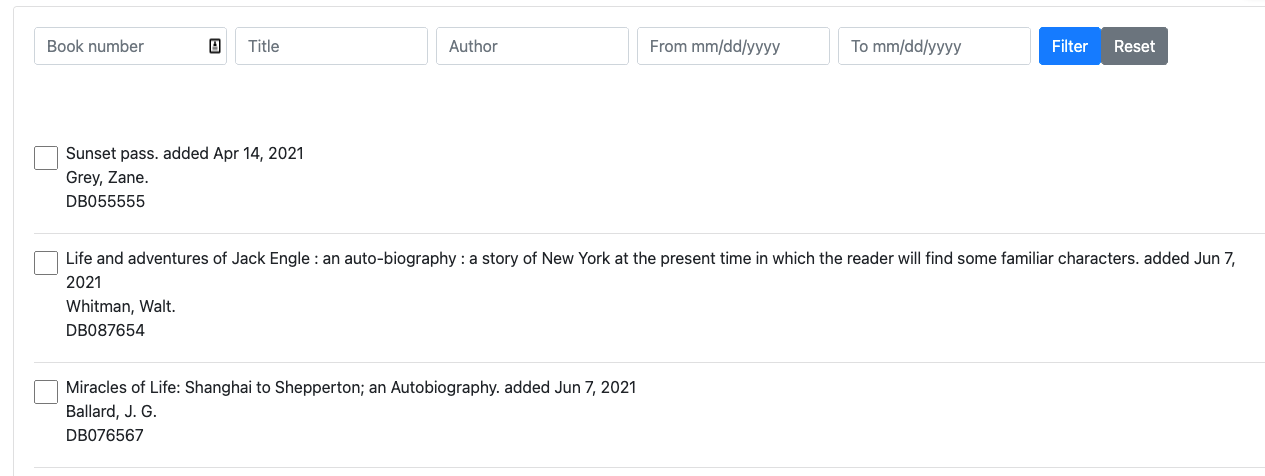
We hope you enjoyed this peek at what we’re working on! If you have feedback you’d like to share about the OPAC and possible future enhancements, please let us know in the comments or via email so we can make sure the new version of the OPAC meets your patrons’ needs as much as possible.
- Andrea Ewing Callicutt
- News
Thank you for attending the 2021 Online KLAS Users' Conference. Whether you were a speaker and / or attended sessions, this event was a success because of your presence. Now the KLAS Users' Group Officers' and Planning Committees ask you to please take some time to share your thoughts and feedback about the event including the content, the platform, etc. Your responses will help shape future conferences and other ongoing KLAS Users' content.
Response Deadline = Friday, July 9
- Katy Patrick
- News
The 2021 KLAS Users’ Conference is over... but if you didn’t get to all the sessions you hoped to (or if you just miss us already) the online event portal is still open!
You can revisit any session page to view the recording. Also, be sure to scroll down to the bottom of the session page to download the chat transcript, slide deck, and any other handouts. The chat features are still live as well, if you have any Private Messages you haven’t answered yet or want to ask additional questions of our presenters. If you aren’t ready to put your headphones back on yet or need a month’s break from PowerPoint before you can stand to look at another slide, that’s fine too—the event portal will be there for you until March 2022.
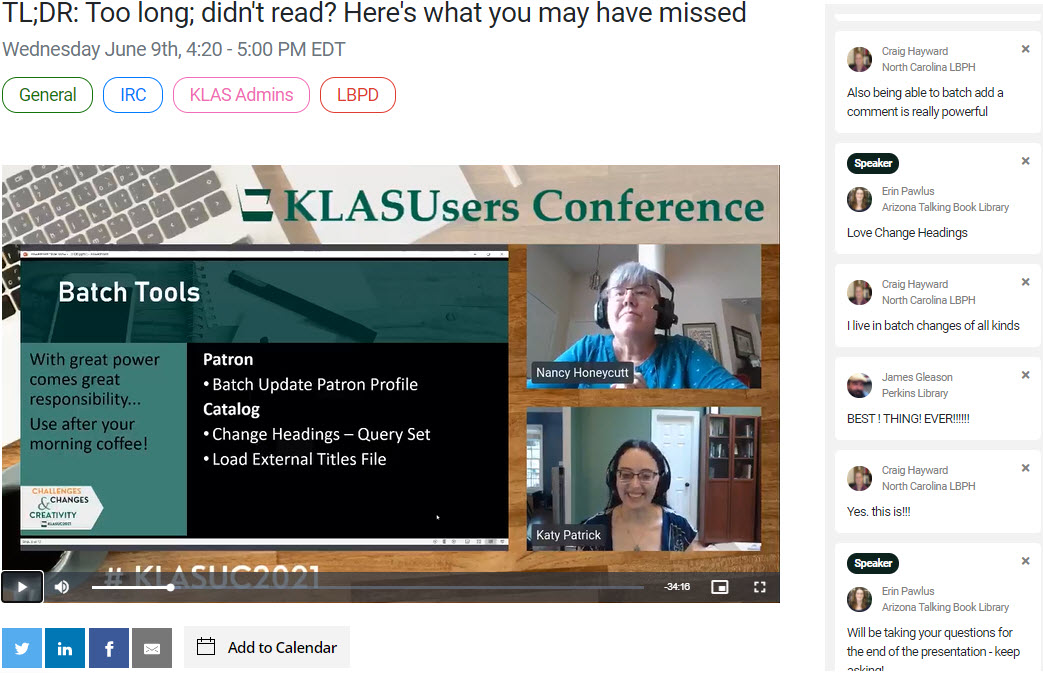
In addition to reviewing the conference content, keep an eye on your inboxes for a follow-up survey. This information will be especially valuable this year, since this was our first-ever online conference, and since the Users' Group will be considering whether to hold virtual conferences again in the future.
In the meantime...
Thank you! Thank you! Thank you! to everyone who attended the conference, and especially to those who presented a session, moderated a roundtable, or just joined in the discussions. Your contributions are so valuable, both to the KLAS Users’ community as a whole, and to us as well. In the final count, we had 261 attendees and 44 speakers (including Keystone staff) for our 38 conference session.
I hope you came away from the conference with new ideas and a better understanding of KLAS. On Keystone’s side, we have a long to-do list and a ton of excitement from hearing how you use KLAS, where we can make things better, and what your priorities are.
While I’m sorry I didn’t get to grab dinner or drinks with any of you, or gather around the coffee dispenser to rev up for the day, I’ve still come away from the conference with the renewed enthusiasm stemming from really seeing how your work impacts others. You are all out there doing amazing things, and I’m so glad we get to be a part of and help support it.
Finally, if you have questions or need assistance with anything you learned at the conference, don't hesitate to use the Support button and let us know! We know you all had a ton of new info thrown your way, and we're happy to help make sense of it all wherever needed.
- Andrea Ewing Callicutt
- News
All attendees of the 2021 Online KLAS Users' Conference will access the conference via PheedLoop's Virtual Event Portal. Here, you will find opportunities to network with speakers and other attendees, browse, search, and add sessions to your personal schedule, access all sessions and their related resources such as PowerPoint presentations, handouts, etc., and more!
Lobby
First, let's take a look at the Lobby area. Here you will find the public and private chat functions, recent event announcements, our virtual photo booth, and more.
The page is organized into four columns:
- Main menu: use this to navigate the conference
- Social area: the Event Feed will display social media posts that tag #KLASUC2021. Need a great selfie for that conference post? Launch the photo booth for a fun background - it's not quite the same as travel photos, but we hope it'll make you smile.
Finally, the Private Chats widget is hanging out at the bottom of the column. You can use the Private Chats feature to follow up with peers after a session, reach out to a new attendee to introduce yourself, or otherwise get to know each other. The widget will stay in place as you navigate the site, so you can use it from anywhere. Start new Private Chats from the recipient's speaker or attendee profile. - Announcements: watch this area for any posts as things come up during the conference.
- Lobby Chat: Get that "around the coffee station" feeling by chatting with all your fellow attendees here (you'll need to supply your own coffee or tea though). Also, don't miss those icons right above the lobby chat!
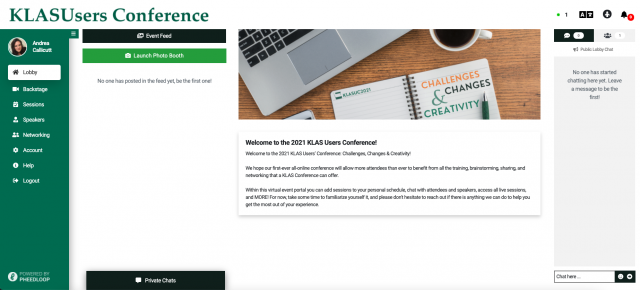
Finally, there a couple important things in the top corner. In the upper right of the screen, you will find notifications, language features, accessibility controls, and a count of total attendees currently online. Use the accessibility icon (a circle with a person's silhouette) to bring up the accessibility menu, where you will find preset profiles and a bunch individual controls.
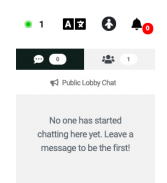
Backstage (speakers only)
Next on the main menu, speakers will find the "Backstage" menu option. If you are presenting a session using PheedLoop's Meet & Stream, go here to start the session. If you're presenting in Zoom or using a pre-recorded session, there's no need to use the backstage. Make sure you schedule a dress rehearsal / practice session so you know where to present your session from, and you're comfortable with all the back-end "stuff."
Sessions
The sessions area displays a list of all the conference sessions, with an expanded view of the selected session to the right, then finally the session chat.
Session list: You can search for sessions or use any of the preset filters (including day, track, speaker, personal schedule, and live now) to browse the list. Use the calendar icon to access the advanced schedule views. As you find sessions that interest you, add them to your personal schedule by selecting the plus sign next to the session title.
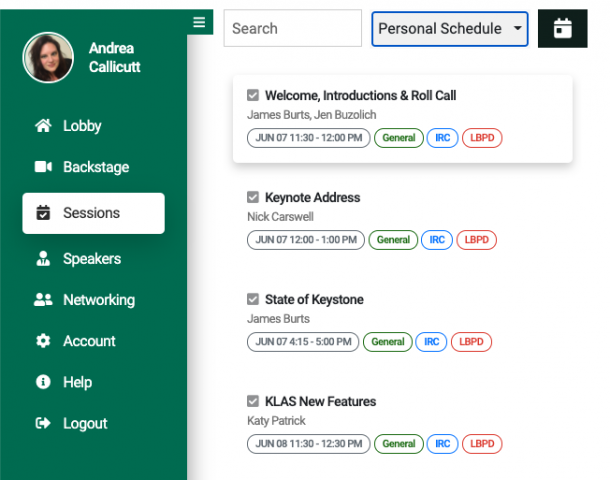
Session Details: This is where you will attend the session when it goes live! You can also share it via social media or email, or add it to your digital calendar (Outlook, etc).
Session Chat: The session chat box has the same look and feel of the lobby chat, but is specific to that session. The chat will remain in place for as long as the event portal is live, not just during the session - so you can ask questions ahead of time or refer back to information shared there even after the session is over.
Speakers
The Speakers area is just like Sessions--but for people. You can browse or search the list of conference presenters, see their bio and other info, review the sessions they're presenting, and even start a chat with them.
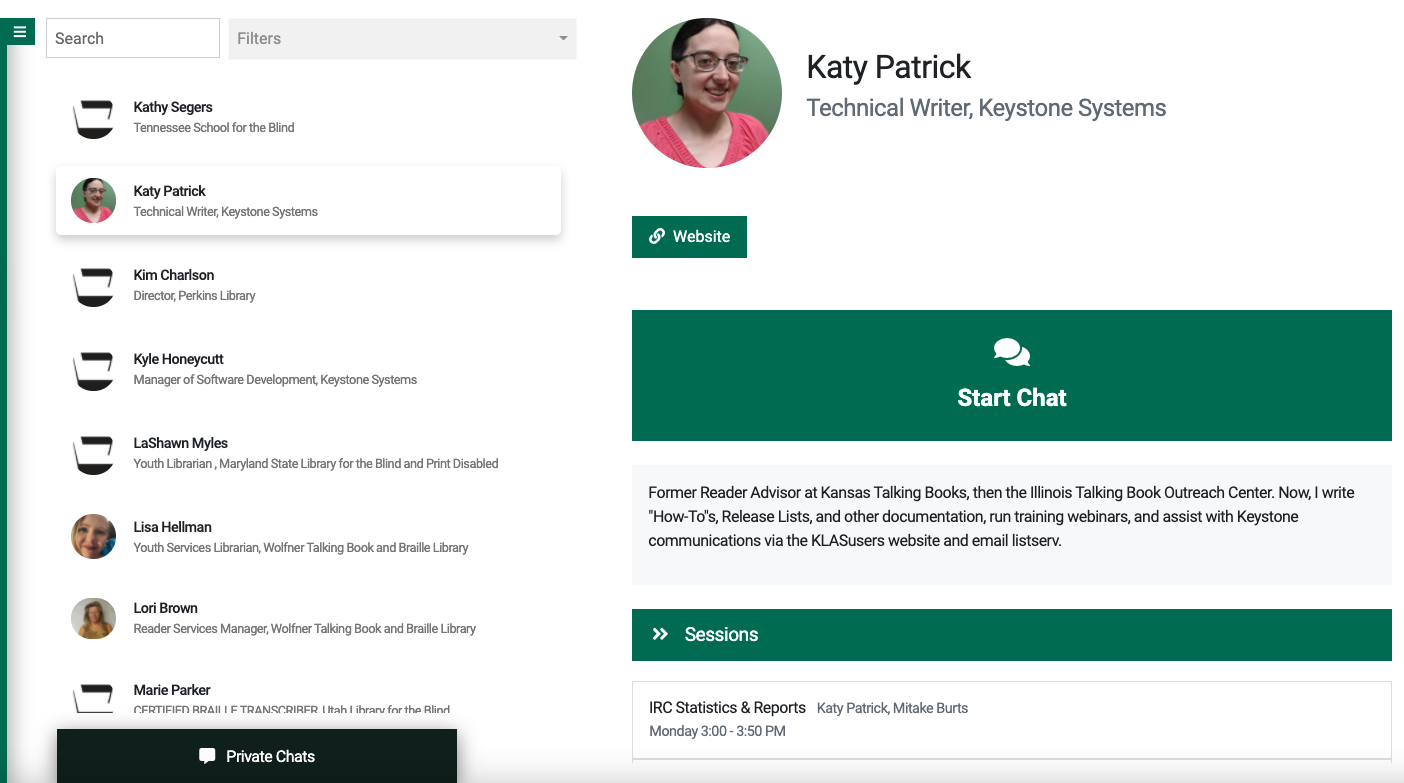
Networking
Networking is a great place to connect with other attendees. Here, you can find all conference attendees' profiles. There are also options to join in or create a group chat around a specific topic. Finally, you can send a private message to any fellow attendee (which you can both view and reply to in the Private Chats widget).
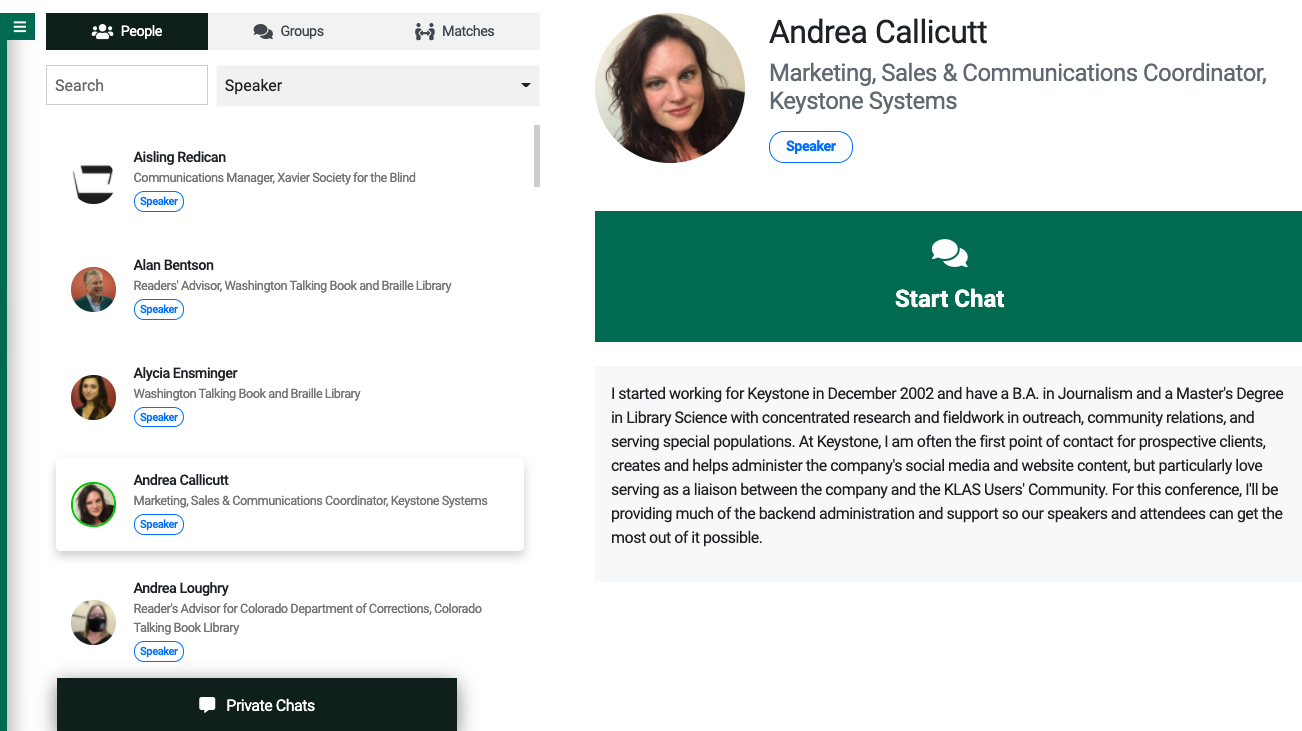
Account
You can view attendee profiles in Networking--but where do they come from? From the attendees themselves! Go to the Account menu item, and here you will be able to edit and add all the info you need to - your profile picture, everything other attendees see when they access your profile, and files you want to share. There's also controls for how you receive event notifications and the option to change your password.
Please take the time to fill in your profile, so your fellow KLAS users can get to know you!
Don't feel pressured to share any info that you don't want to, but some things to consider adding: your pronouns, what your role is at your organization, how long you've been using KLAS, and links to social media you use professionally. Finally, as you can see, the photos are never shown very large, and it can be very helpful to put a face to the name. A simple headshot is best! However, if you decide not to share a real photo, a pet or something iconically "you" will still help other attendees recognize and remember your profile.
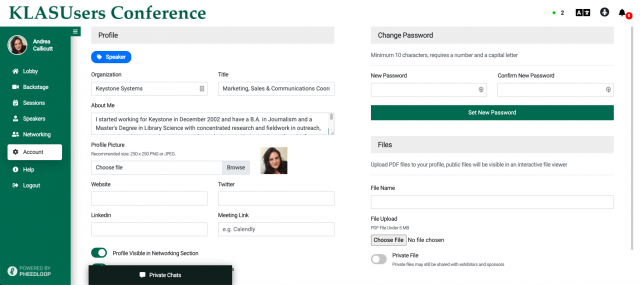
We hope this brief tour of the KLAS UC 2021 Virtual Event Portal will help you get acclimated and have the best experience possible during our very first fully online conference! We're so excited to see you all there!





